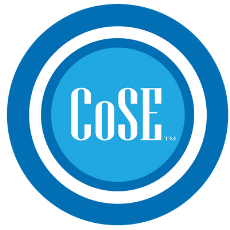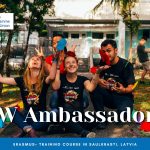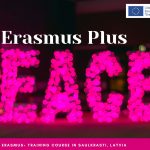Erasmus+ Project: (Me)dia as a tool for (You)th Work
Project Reference: 2021-2-PL01-KA153-YOU-000039238
This Erasmus+ project was a joint partnership between 6 European consortium member organizations (Latvia, Belgium, Spain, Portugal, Lithuania, and Italy), with the main goal to analyze the influence of social media & digital skills on specific social issues. The implementation of the project was planned between 3-12 June 2022.
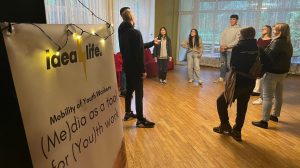 To achieve Erasmus+ programme objectives, specifically “the promotion of European values in accordance with Article 2 of the Treaty on the European Union”, this will be accomplished by a non-formal learning setting and digital tools, such as social media, internet, photo, and video art. One of the top priorities of our traning course will be to elevate Erasmus+ programme as a powerhouse for great ambitions with striking and authentic results. We also aim to encourage participants to learn how to generate fruitful strategies and execute them in their community, to bestow values under objectives of Erasmus+ as well as to highlight their energies using digital tools.
To achieve Erasmus+ programme objectives, specifically “the promotion of European values in accordance with Article 2 of the Treaty on the European Union”, this will be accomplished by a non-formal learning setting and digital tools, such as social media, internet, photo, and video art. One of the top priorities of our traning course will be to elevate Erasmus+ programme as a powerhouse for great ambitions with striking and authentic results. We also aim to encourage participants to learn how to generate fruitful strategies and execute them in their community, to bestow values under objectives of Erasmus+ as well as to highlight their energies using digital tools.
Impact
As our partners/stakeholders learned previously in 2020, due to the COVID-19 pandemic and restrictions of movement, over 80% of the web audience came from videos. According to coming statistics, in 2021 it is only going to grow even further. This illustrates the point that most youngsters are drawn to pictures and motion. We aspire to fulfill means on how to deliver, we crave to expand and upgrade the skills of youth workers in the field of active actions in local communities, social media, and digital technologies (social media marketing, storytelling through video & graphics). This will be achieved through non-formal education methods and a lot of training throughout the 9 days of the plan. We suppose to seize the results as a moment to start using new methodologies and technologies for youth workers and NGOs by enhancing their visibility to a broader group of people.
To ensure a high – quality non-formal learning, the organizers will be guided by the following principles:
- Participants will learn in non-formal contexts voluntarily and not obligatory;
- Participants will be involved in the planning, preparation, implementation, and evaluation of the project;
- The activities will take place in a diverse range of environments and situations.
- It will take place in the same time inside the venue, outside in different surroundings of the venue, they will be given different tasks to accomplish.
All of those activities will be relevant to their work and will help create an international campaign towards issues chosen by participants. From practical activities participants will be able to put their knowledge into practice, and create pilot social campaigns that are relevant to the work of different organizations from different countries. In the end of the project their work will be shown during an exhibition in the town of Saulkrasti. Participants will organize a form to invite people to the public showcase of the videos and photos, which will take place in one of public places. We expect participants to bring all the knowledge back home and to share this fruitful international experience with their local communities, as well as visualisation and recognition of Erasmus+ programme and promotion of this programme and main donor – Foundation for the Development of the Education System (FRSE) (NA).
This way, the project aims to connect people from different regions of Europe and share common practices, user cases and results to come in one place and share what and how they are working within partner organisations which participates in this project. They might establish cooperation ties and possible contacts for future cooperation. Even though it will be part of rather informal learning, it is significant learning process too. The training course focuses on ensuring quality and disseminating practices and insights innovative educational methods within Erasmus+ programme and we aim for involving more people and organizations doing a qualitative activities funded by this programme.
The main objectives of “(Me)dia as a tool for (You)th Work” training course are: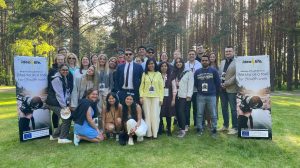
- To build a platform of participating and conversations between youth workers about promotional gadgets like photos, video, social media, presentations, festivals, street actions etc. We will manifest participants in “live” setup how to regulate and adjust these tools;
- To raise awareness on the social problems relevant to Erasmus+ priorities and the achievement of youth workers amid them and their target groups;
- To spur the sense of accountability for their work with participants through the production of new methods of stimulating the active work of young people;
- To improve basic digital skills using a creative approach towards the art of photo and video activity by attending dynamic workshops, social media, and practical work.
Partner organizations involved in this project:
